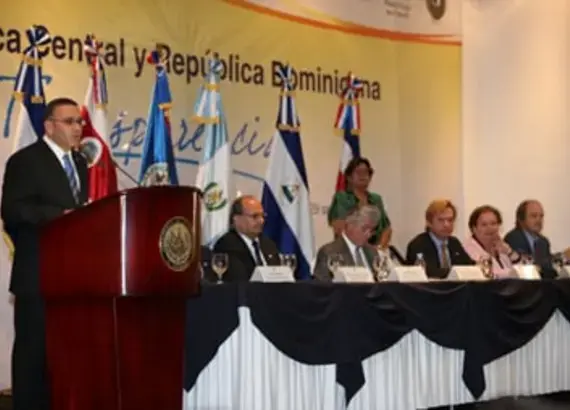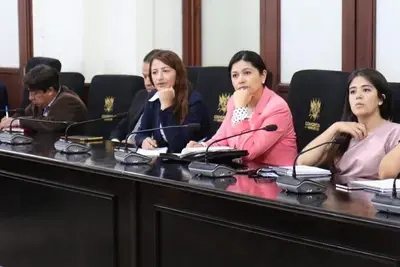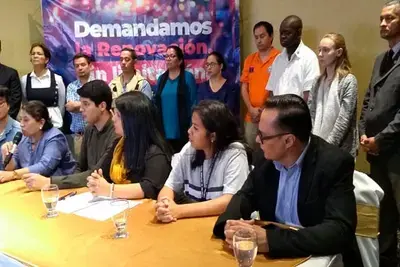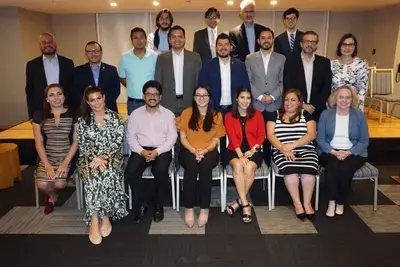
Success Story
Central American Leaders See Transparency as Key to Public Security
Public security is the number one issue for Central American countries, especially those in what is known as the Northern Triangle, which includes El Salvador, Guatemala and Honduras. More than three quarters of the population in Central America believes that insecurity is the greatest problem facing the region, according to a recent United Nations report.
At a recent forum, leaders from government, political parties, business, academia and civil society in the region gathered in El Salvador to get to the root of the problem by highlighting the link between security and transparency.
“States with high levels of corruption and impunity are particularly susceptible to the infiltration of groups linked to organized crime,” said Eduardo Nuñez, NDI’s resident director in Guatemala and director of NDI’s regional program to promote civil society participation in public security issues. “These groups undermine the states’ ability to form policies that effectively address the issues of insecurity and the spread of violence.”
The 150 forum participants identified and agreed to implement concrete actions to fight corruption and increase transparency. They included strengthening collaboration between civil society and government to root out corruption in state security agencies; creating violence prevention plans, especially at the municipal level; and improving oversight of political contributions to prevent the infiltration of drug money in democratic politics.
A declaration was signed by the participants that reaffirmed the commitment to address the epidemic of violence in the region. In writing the declaration, forum participants examined and built on past regional and international agreements that set out plans to stem corruption and violence.
One mechanism for getting more results may be to establish a regional impunity commission, like the U.N.-backed Commission against Impunity in Guatemala (Comisión Internacional contra la Impunidad en Guatemala, CICIG). CICIG works with the Guatemalan government to investigate and dismantle criminal organizations believed to be responsible for the high level of crime and weak judicial system. It is credited with resolving several high profile cases. Central American leaders, including Salvadoran President Mauricio Funes, have encouraged discussion on whether a similar regional body could help governments in the sub-region tackle the challenges of transnational crime.
“There is wide interest in understanding the role of this commission, its mandate, its mechanisms, its results, its limits,” Nuñez said. “The extraordinary growth of organized crime in the region warrants extraordinary measures to contain it, and among them the CICIG model deserves to at least be considered.”
The CICIG commissioner Francisco Dall´Anese, along with Nuñez, attended the two-day forum supported by NDI and co-sponsored by the Salvadoran Government, the Central American Integration System (Sistema de Integración Centroamericana, SICA), the National Foundation for Development (Fundación Nacional para el Desarrollo, FUNDE) and Transparency International. The declaration and policy proposals of the forum will be assessed in a year when a similar forum convenes in Costa Rica.
Pictured Above: Salvadoran President Mauricio Funes (far left) provides opening remarks at the forum on transparency and public security in San Salvador, El Salvador held Sept. 28-29.
Published October 8, 2010



